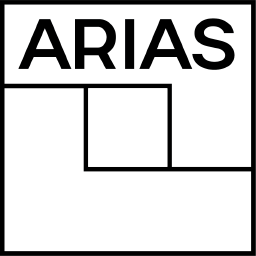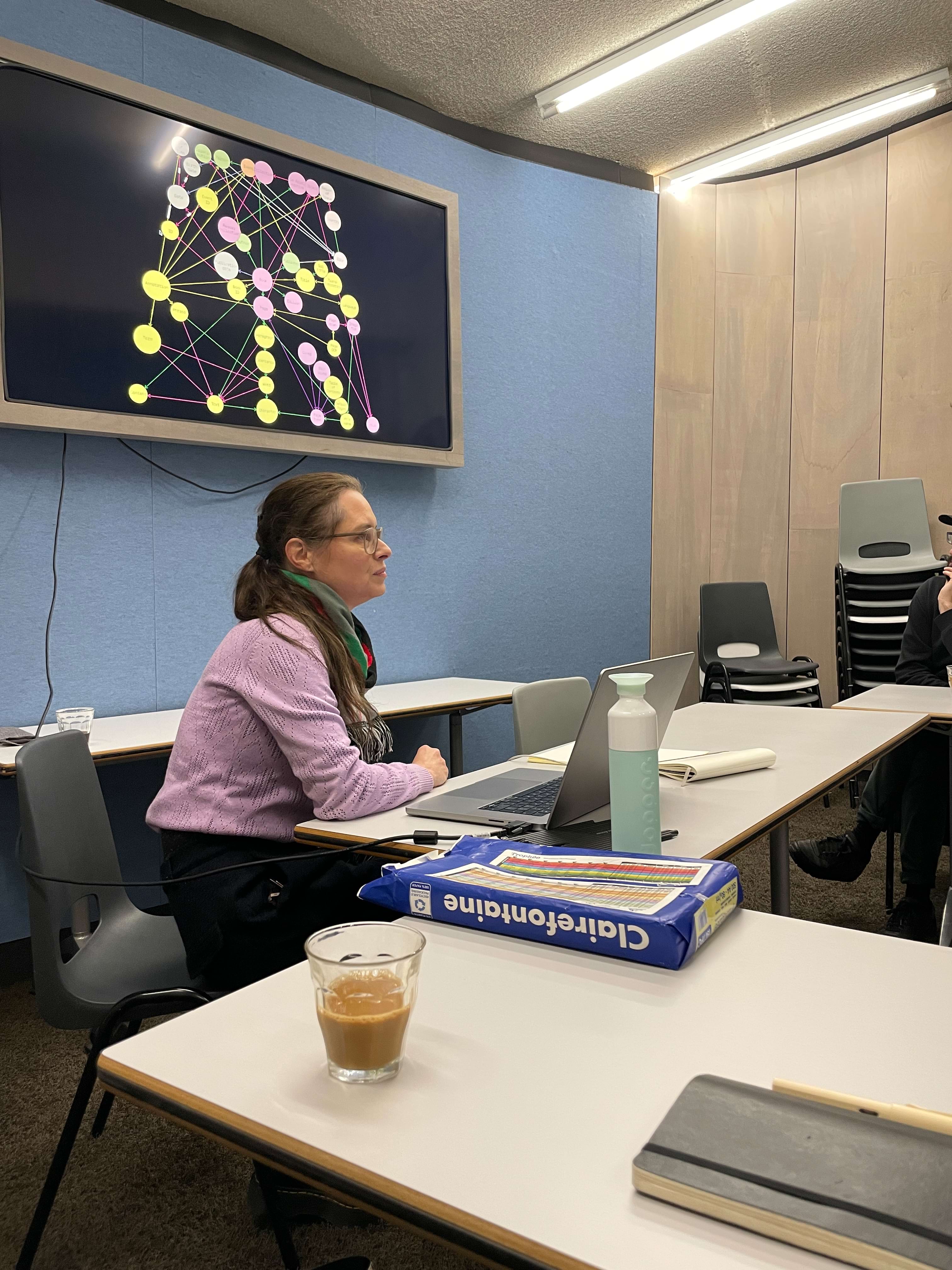

AI produced glitch from the De Appel digital archive. (Bibliograph Glitch Collection Screenshot HORT12 Toine Horvers Vertoningen 20042005.)
Following a pace often invisible to the naked eye, the archive promises a counter-temporality to an era of efficiency and acceleration. At the heart of the De Appel, researcher Mariana Lanari and archivist Nell Donkers introduced us to the rhythms of its collection. An entity that moves against the frantic backdrop of algorithmic accumulation. Unlike other sites that manage data, the archive of De Appel avoids tracking, nudging, or profiling visitors but instead remains in a state of quiet transformation, inviting open exploration and constant re-engagement.
In this fourth material playground of the Slow AI x Artificial Worlds sessions, we adjusted our pace to follow the everyday practices of archival data making. We examined the ways a spine code transforms objects in the collection, how a book can reshape a library, and how the physical interacts with the digital. Through this encounter, we contemplated some of the basic concepts that shape our thoughts around the practices of collecting, connecting, and interpreting, resulting in a collection of terminologies that will be shaped into an index. We finished the session with a discussion about reclaiming data from falling into a cycle of extraction and focusing on the slowness of data making, as well as their inherent potential as sources of knowledge.










Participants: Adam Driggers, Alena Alexandrova, Alix Stria, Carlo De Gaetano, Chia-Wei Tung, Christine van Royen, Dorin Budușan, Elizaveta Federmesser, Everdien Breken, Flavia Dzodan, Imogen Coulson, Inez Vierdag, Iulia Aionesi, Julia Sokolnicka, Marijn Bril, Nienke Scholts, Orestis Kollyris, Patricia de Vries, Sabine Niederer, Slobodan Jokic, Smaragda Nitsopoulou, Xenia Sikora, Zachary Formwalt.










In the spring of 2024, the Slow AI project launched a series of material-based research workshops that took the form of Material Playgrounds, borrowing the term and building on the work of Socrates Professor Erik Rietveld. These workshops aim to collectively explore different ways of engaging with AI through material investigations that allow for playful exploration and experimentation.
Slow AI focuses on developing strategies to address colonial and extractive histories embedded in current AI systems by applying the concept of ‘slowness’ to a fast technology. It is a project initiated by artist and researcher Mariana Fernández Mora and a collaboration between the Visual Methodologies Collective (HvA) and the Sandberg Institute (GRA). In collaboration with the Artificial Worlds group at ARIAS Amsterdam and generously funded by the Centre of Expertise Creative Innovation, Slow AI aims to contribute to a more equitable and sustainable technological landscape.
For updates on the research and public events, subscribe to the ARIAS Artificial Worlds newsletter.










